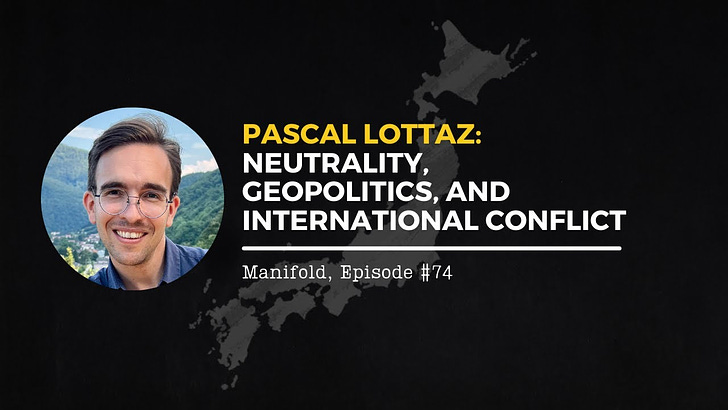Pascal Lottaz is Associate Professor at Kyoto University’s Faculty of Law & Hakubi Center. His research area is Neutrality Studies - the study of neutrality as a concept in international relations, sociology, international law, diplomacy, political science, security, and history.
Follow Pascal on X: @Plottaz
Pascal's YouTube channel: https://www.youtube.com/@neutralitystudies
(00:00) - Professor Pascal Lattaz's background, early life, and experiences in Japan
(14:17) - Neutrality in international relations
(20:07) - Ukraine's struggle for neutrality
(28:44) - Debating the Ukraine conflict
(37:50) - Physics, social sciences, and observer-independent reality
(46:13) - The importance of dissent in open societies
(47:01) - Russian resilience, NATO, escalation strategies, and potential outcomes
(51:43) - European realism and U.S. influence
(56:16) - Incentive structures and NATO dynamics
(01:04:11) - Japan's strategic position and U.S. alliance
(01:13:49) - Potential conflicts and proxy wars in East Asia
(01:30:35) - Philippines' strategic dilemma
(01:36:26) - Concluding thoughts
Audio-only version and transcript:




Interesting interview, and a fascinating guest! (A string of excellent episodes, by the way; I especially liked the #73 Letter from Shanghai.) Three things now have reminded me of a comment that I'll write here.
(1) In this episode, Lottaz's presence in Japan, which gives him an interesting perspective on world events, was launched by a high school exchange program;
(2) You note in your previous podcast and others that traveling to places like China is invaluable for getting a deeper and more accurate sense of what the world is like; I certainly agree;
(3) Earlier this week I spent two days in Berkeley, giving the Physics colloquium and chatting with people (mostly not in Physics, an interesting point in itself), which was of course an "official" seminar visit.
Note that #1 and #3 are facilitated by programs run by institutions. I would think, given #2 and the rise of China in particular, that there would be a large benefit for something like NSF-funded visits of researchers from and especially *to* China -- not only to get a sense of how science/technology in particular are being done, but how things like scaling up institutions (creating an enormous STEM educational infrastructure, fast) are being done. Thoughts?